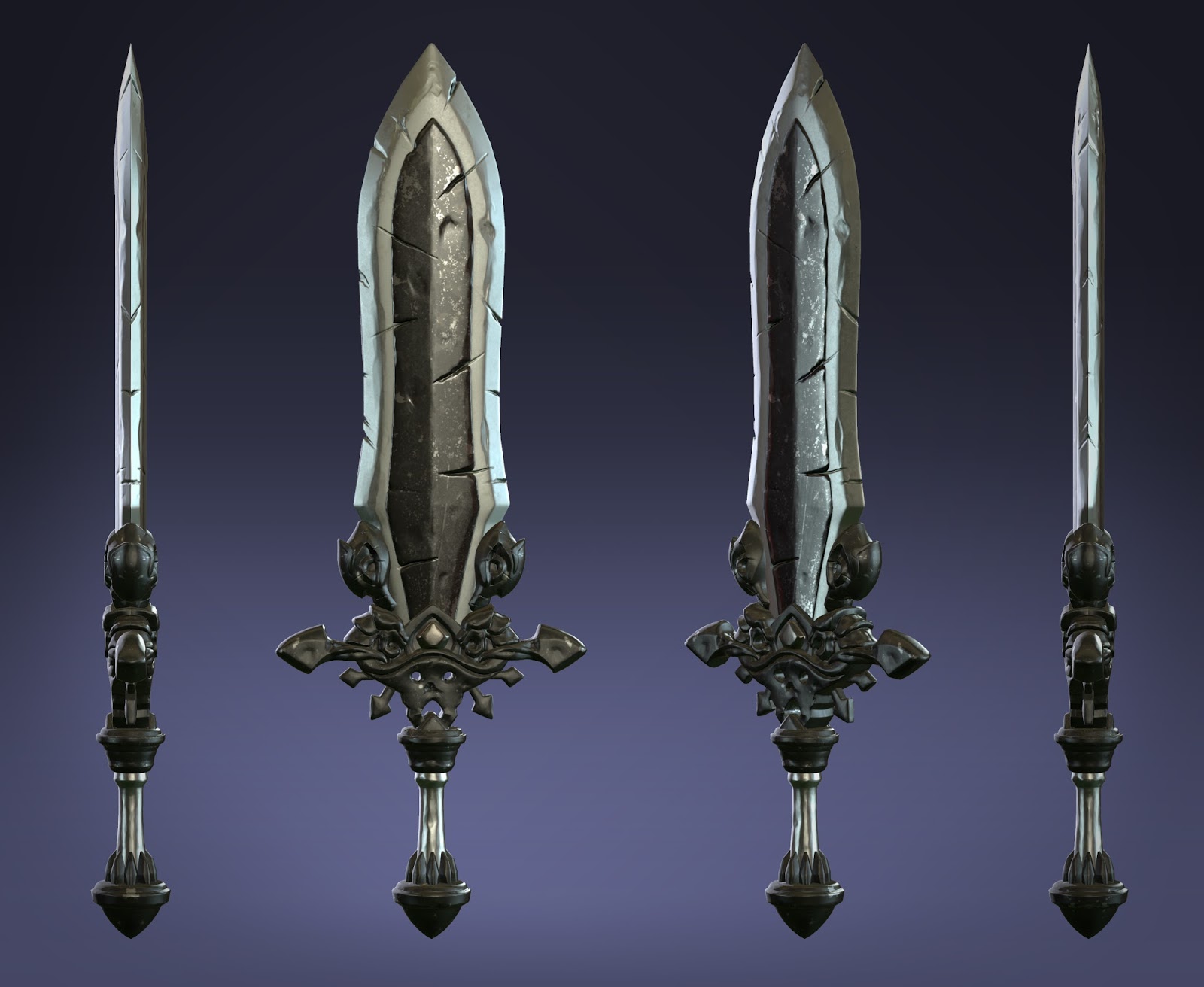PBR Sword
I decided to try my hands at creating a sword with the PBR workflow. Here is what I have, I want to make sure I am not working in a vacuum so I have to post some renders to see what you guys here on polycount think. So with that said feedback would be awesome if you want to give it 





Replies
I agree with the material definition. Even for worn metal, you want the non-worn parts to be shiny, to create sexy roughness contrasts - in my opinion.
I also think you could reduce the polycount on the handle by 80% if you are going for efficiency
Looking forward to see where you take it
Certain scratches and dents in the sculpt also make it seem almost more hollow, as opposed to a nice strong blade. As an example the first dead-on shot, right underneath the first large gash that crosses between outer/inner blade starting from the top, that dent under that gash looks like something I'd see on a car door, not a sword, and there are other similar looking dents throughout.
Agree with the other comments that you need some nice shiny bits in there to sell it as metal, worn or not.
Two Listen: Thanks for the feedback. It's definitely something I'll look into further in terms of the kinds of damages normally seen on weaponry. I did add those dents in order to get some variation, but perhaps I went a bit too far since it looks like it may be hallow beneath.
Thanks everyone for the awesome feedback! I really appreciate it, here is an updated version.